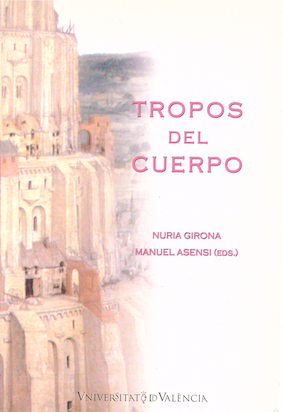Margo Glantz y el arte de poner el cuerpo
DOI:
https://doi.org/10.7203/qf-elit.v9i0.5135Keywords:
Margo Glantz, women writing, feminism criticism, body Abstract
Abstract
Woman writer, Latinamerican and Jewess, Margo Glantz defines herself as a nomad subject, with a ludic attitude towards any kind of limit. Combining criticism and creation, her essays delve in colonial discourses as much as in those of contemporary concentration camps. Having coined “onda mexicana” as a label for the latest urban novels, she also produces erotic literature. She emphatically states that her writing originates in her sexuality, her “nearest geography”, although this might sound obscene. Her poetics composes figures that insist in embodying texts and textualizing bodies, for “it has always been most important to descend unto the body, a strong concern of Bataille’s: he always starts from the foot’s big toe, from the ground, from the most corporeal objects, from urine, blood …”. Tongues, feet, breasts, hands, hair, allow for a new encoding of Latinamerican literature and culture. Adrienne Rich demanded “A politics that posed women’s questions”. Margo Glantz, it may be stated, advances a “Criticism that poses women’s questions”, in which words and bodies give form to a poetics offering a new politics of reading.
 Downloads
Downloads
Downloads
Published
How to Cite
-
Abstract288
-
PDF (Español)1032
Issue
Section
License
 Este obra está bajo una licencia de Creative Commons Reconocimiento-NoComercial-SinObraDerivada 4.0 Internacional.
Este obra está bajo una licencia de Creative Commons Reconocimiento-NoComercial-SinObraDerivada 4.0 Internacional.
Authors who publish with this journal agree to the following terms:
- Authors retain copyright and grant the journal right of first publication with the work simultaneously licensed under a Creative Commons Attribution License that allows others to share the work with an acknowledgement of the work's authorship and initial publication in this journal.
- Authors are able to enter into separate, additional contractual arrangements for the non-exclusive distribution of the journal's published version of the work (e.g., post it to an institutional repository or publish it in a book), with an acknowledgement of its initial publication in this journal.
- Authors are permitted and encouraged to post their work online (e.g., in institutional repositories or on their website) prior to and during the submission process, as it can lead to productive exchanges, as well as earlier and greater citation of published work (See The Effect of Open Access).



